Bruce Nash
This user hasn't shared any biographical information
Homepage: http://dnalc.org/about/staff/nash.html
Posts by Bruce Nash
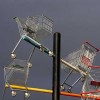
Jumping Down the Road to Cancer.
Aug 28th
Lying dormant in our genomes are millions of jumping genes. Originally discovered by Barbara McClintock, transposons are DNA sequences that can move from one location to another in our DNA. Transposons cause mutations when they jump to new locations, so keeping them from jumping is important. However, although transposons are largely silent, every person probably has a few “rare” sites, found in only a few people in the world, where a transposon has jumped to a new location.
Mutations in numerous pathways need to accumulate for cancer to progress. Given the ability of transposons to cause mutation and the role of mutation in More >
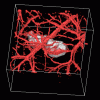
Finding Cancer: Can you hear the light?
Apr 4th
Finding cancers early allows for more effective treatment with the least side effects, so finding better ways to detect cancers is an important part of the fight. A new technique may help us “hear” where cancers are, allowing doctors to diagnose cancers more precisely than is currently possible. The technique, which is called photoacoustic tomography, takes pictures of sound waves that come from tissues when laser light is shined on the tissue. This is possible because different parts of the body absorb different amounts of light. When light is absorbed, it raises the temperature of the tissue, and the temperature More >

Exhausting Our Lungs
Mar 7th
I have often wondered what impact the diesel fumes from yellow school buses might have on students. I know that I don’t like driving behind those buses because the fumes don’t smell good, so it seemed to me that there might be some health consequences. Others have wondered, too, and there is evidence that exhaust levels in buses can have health effects. However, it is hard to study this sort of thing, because finding people that are exposed to high levels of diesel in a controlled environment over long enough periods to measure the effects is challenging. Now, a study More >

Tumor Treatment: Whether to Shrink or Not to Shrink
Feb 6th
Just like normal tissue, tumors need blood vessels to grow. Because of this, drugs that stop angiogenesis, or the formation of new blood vessels, are one important approach to treating cancers. These angiogenesis inhibitors stop tumor growth by starving them of oxygen and nutrients, usually by interfering with signals from the tumor cells that promote blood vessel formation in the surrounding tissue. Angiogenesis inhibitors have been shown to be effective in the treatment of several cancer types, but the results aren’t always as expected. Several recent studies show how complicated this can be. For instance, FDA approval of the drug More >

Cancer Overtreatment. When the solution is worse than the problem.
Dec 13th
We often focus on cancers that are lethal, and especially those that can’t be treated, and for obvious reasons. This week, the National Institutes of Health addressed a different concern- that sometimes a cancer that isn’t life threatening is best left alone. In this case, it is prostate cancer, which affects about 30 to 40 percent of men over 50. About 240,000 men are diagnosed with prostate cancer a year, and over 30,000 die of the disease – so it is far from being rare or harmless for many. However, over half of prostate cancers are localized and many will More >
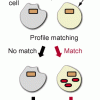
Designer Biology in the Fight against Cancer
Nov 8th
As many of you know and I have discussed before, cancer therapies have to target cancer cells while minimizing damage to normal cells. This is very difficult, in part because cancer cells are, although altered, still human cells. Synthetic biology is a new field that engineers biological systems for different applications. One interesting area where synthetic biology is now being applied is to cancer therapies. One advantage is that it may be possible to engineer sensors that can differentiate normal cells from tumor cells.
Early approaches have used engineering to create bacteria that specifically invade tumor cells. In one approach, bacteria More >
A Prize and a Passing
Oct 3rd
As some of you may have noticed, I have blogged about pancreatic cancer in the past because it is such a nasty type of cancer. Now, pancreatic cancer is in the news because, sadly, Ralph M. Steinman, who was awarded the Nobel Prize in Physiology or Medicine for his ground-breaking work on the immune system, died before he could receive the Award. Dr. Steinman primarily worked on immune cells, but his work also touched on cancer. The immune system monitors the body for both foreign invaders, like bacterial infections, and rogue cells that might become cancerous. The immune system is More >
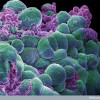
Feed a cold and starve a cancer?
May 12th
A recent review in Oncogene discusses how fasting may help patients who have been diagnosed with cancer. This is interesting, because at the moment most people are advised to eat extra calories and proteins while undergoing cancer treatments. It turns out that in animals fasting changes the physiology of the body and this can help protect normal cells from the damaging effects of anti-cancer agents. The amazing thing is that cancer cells are abnormal and don’t get the same protection, so fasting seems to be a way to help normal cells and not help the targets of the treatment. It More >
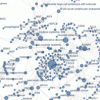
Cancer Genomics: so many mutations!
Feb 18th
The human genome is the complete collection of over three billion bases in each of our cells. Cancers accumulate multiple changes, or mutations, in their DNA that contribute to the disease by changing how cells behave. For instance, cancers need nutrients to grow. Very often, they get these nutrients by producing signals that encourage new blood vessel formation. Finding the mutations that lead to cancer is very difficult. For one thing, even for cancers that affect the same tissue and look similar, the mutations can be very different. Also, one of the hallmarks of cancer is an increased rate of More >
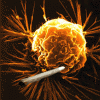
Addicted cancers
Jun 9th
Most people know that smoking is a hard habit to kick because smokers become addicted to the nicotine and habit. Equally sad is the tendency of young adolescents to start smoking for social and psychological reasons.
In a turn-around of sorts, it may be comforting to know that cancers can become addicted, too. Cancer cells have many different genetic changes, as well as changes in the expression of genes that are not due to mutations called epigenetic changes. Although cancer cells do have many differences from normal cells, they are still very similar to normal cells, making it very difficult to More >
